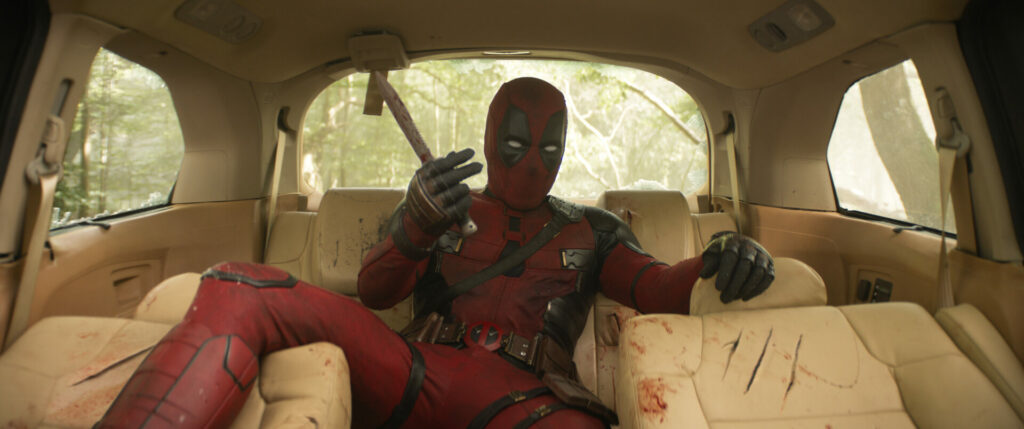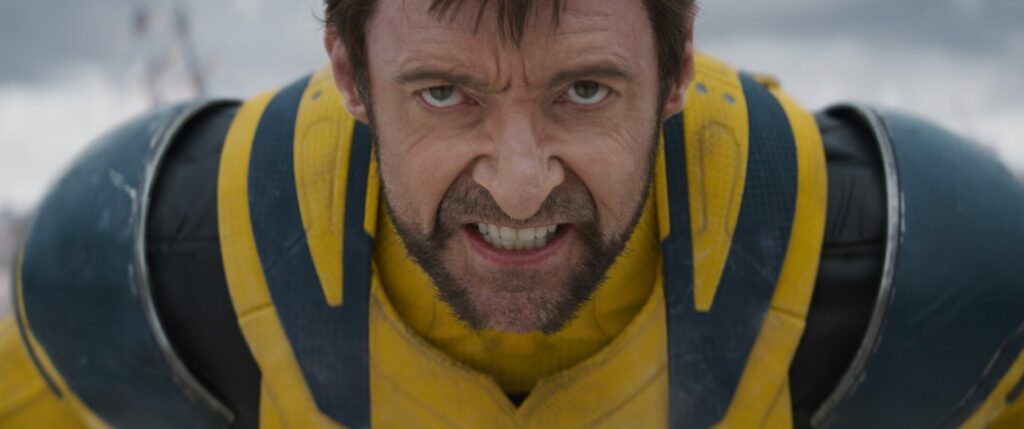Deadpool & Wolverine might be the MCU’s ‘queerest film’ to date, but it’s not a win
Opinion: Why are we still scrounging for scraps of queer representation in a series of films based on comics that are heaving with queerness?

Since its release in July, Deadpool & Wolverine has become a smash success. In its opening weekend alone it made $205m (£160m) at the domestic box office and $233m (£182m) internationally. All in all, the best-ever opening for an R-rated film.
Critically, the film has received mixed reviews while getting a lot of love from audiences. It currently has a 96% audience rating on aggregator Rotten Tomatoes (78% from critics). Much has been made of the film, whether it’s the shot in the arm the Marvel Cinematic Universe (MCU) needs after a series of middling to poor releases, or even what constitutes a film.
Deadpool & Wolverine‘s queer elements have also been argued over. Even at Attitude HQ we’ve discussed whether this is “the queerest MCU movie yet.” And looking at everything, it kind of is.

As a comic book character, Deadpool identifies as pansexual. Ryan Reynolds’ on-screen version of the character has never explicitly identified as such. But he has displayed a lot of love for a lot of characters. As well as Vanessa (Morena Baccarin) the merc with the mouth has certainly made flirtatious banter with Colossus, Cable, and also about and at Wolverine (Hugh Jackman), who is also not straight in the comics. His queerness also isn’t referenced in the film at all.
Like its predecessors, Deadpool & Wolverine contains numerous jokes relating to Deadpool’s queerness. However, the gags stray into the familiar territory where the queerness is something to be laughed at only and not delivered on in any meaningful way. Some fans have argued the jokes in Deadpool & Wolverine are homophobic, which I don’t think is entirely wrong.
Deadpool & Wolverine also features Emma Corrin as chief baddy Cassandra Nova, an Omega-level mutant and a twin of Professor Xavier who died in the womb. Corrin identifies as non-binary but there’s nothing to say Cassandra is. Besides Tessa Thompson in Thor: Ragnarok, Thor: Love and Thunder, Avengers: Endgame, and The Marvels, Corrin is the most prominent out-queer actor to join the MCU. Deadpool & Wolverine also features a slew of openly LGBTQ+ characters – Negasonic Teenage Warhead (Brianna Hildebrand, herself queer) and her partner Yukio (Shioli Kutsuna) as well as Shatterstar (Lewis Tan). There’s also the member of the Time Variance Authority who clearly has an attraction to both Deadpool and Wolverine.
So, we have five (six if we include Wolverine) LGBTQ+ characters, a stack of gay jokes, and at least two openly queer actors. So, by some rudimentary test, Deadpool & Wolverine looks like the queerest film in the MCU. Other projects have referenced a character’s queerness and/or featured a queer actor and/or creator here and there. There have even been a few queer jokes. But Deadpool & Wolverine manages to get them all in one.

The sad thing is it doesn’t feel like a win. I didn’t walk out of the cinema merrily laughing “We did it, Joe!” Instead, I left having enjoyed the film very much but still feeling disappointed. Rather than getting any meaningful queer stories and/or character development, we’re stuck with tired old jokes made at queer people’s expense and largely ignored queer identities. Iron Man, the very first film of the MCU, was released in May 2008. That was sixteen years ago!
And as Attitude has documented here, the MCU’s LGBTQ+ representation has been much promised and highly underdelivered. Every couple of years we get more promises that more is coming. And still, we wait. We scrounge for scraps of queer representation in a series of films based on comics that are heaving with queerness. It’s also worth noting that it’s the R-rated film that gets this level of queerness we must settle with. So, is queerness a preserve of adult audiences only?
And annoyingly, Ryan Reynolds has even said himself he wanted to explore more queerness through Deadpool. In 2018, after the release of Deadpool 2, the actor trotted out the usual line about the need to “reflect the world in very real ways.” He then added: “The great thing about Deadpool is that we’re allowed to do things that other superhero movies don’t necessarily do. It’s something that I’d love to see more of, certainly through Wade, certainly through this universe because it’s something that we’re building out more.” He said similar things before that. So is this what he meant? Did he forget about this? Was he silent or was he silenced? Or was this just lip service? Who knows?
Even at this point, as a hardcore fan, I’m hopeful the queer representation will come. The acquisition of 20th Century Fox by Disney also allows for the X-Men, famously an allegory for queerness, to become a major part of the MCU. X-Men ’97 was a huge success, earning love from fans old and new as well as award nominations. It’s just how much longer will we have to wait for proper, well-executed queerness in the MCU? Where it’s not a small side character or subtle reference, it’s given the time and space it deserves.
